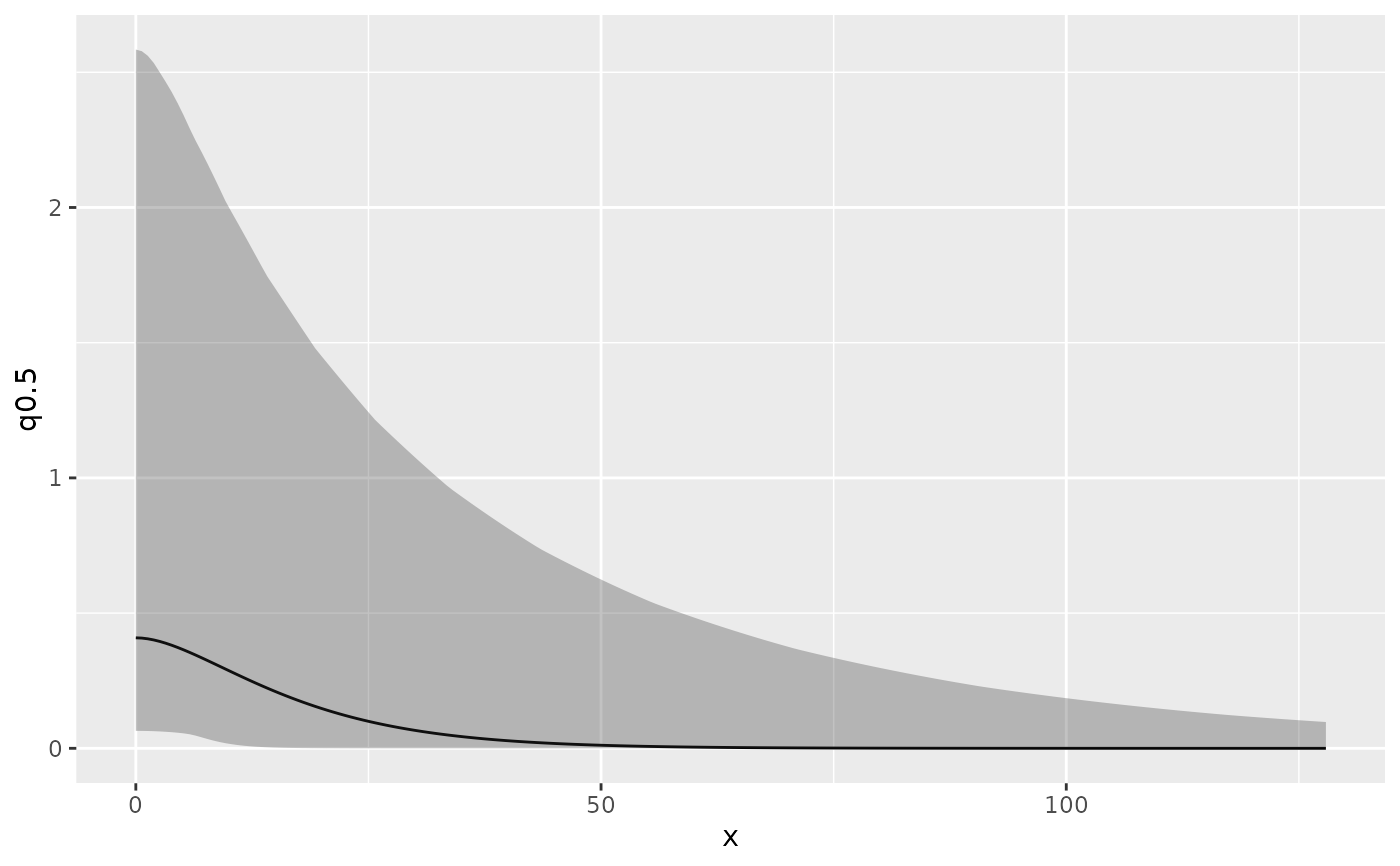Posteriors of SPDE hyper parameters and Matern correlation or covariance function.
Source:R/spde.R
spde.posterior.RdCalculate posterior distribution of the range, log(range), variance, or
log(variance) parameter of a model's SPDE component. Can also plot Matern
correlation or covariance function. inla.spde.result.
Author
Finn Lindgren Finn.Lindgren@ed.ac.uk
Examples
# \donttest{
if (bru_safe_inla() && require(ggplot2, quietly = TRUE)) {
# Load 1D Poisson process data
data(Poisson2_1D, package = "inlabru")
# Take a look at the point (and frequency) data
ggplot(pts2) +
geom_histogram(
aes(x = x),
binwidth = 55 / 20,
boundary = 0,
fill = NA,
color = "black"
) +
geom_point(aes(x), y = 0, pch = "|", cex = 4) +
coord_fixed(ratio = 1)
# Fit an LGCP model with and SPDE component
x <- seq(0, 55, length.out = 20)
mesh1D <- fm_mesh_1d(x, boundary = "free")
constrained_matern <- INLA::inla.spde2.matern(mesh1D, constr = TRUE)
mdl <- x ~ spde1D(x, model = constrained_matern) + Intercept(1)
fit <- lgcp(mdl, data = pts2, domain = list(x = mesh1D))
# Calculate and plot the posterior range
range <- spde.posterior(fit, "spde1D", "range")
plot(range)
# Calculate and plot the posterior log range
lrange <- spde.posterior(fit, "spde1D", "log.range")
plot(lrange)
# Calculate and plot the posterior variance
variance <- spde.posterior(fit, "spde1D", "variance")
plot(variance)
# Calculate and plot the posterior log variance
lvariance <- spde.posterior(fit, "spde1D", "log.variance")
plot(lvariance)
# Calculate and plot the posterior Matern correlation
matcor <- spde.posterior(fit, "spde1D", "matern.correlation")
plot(matcor)
# Calculate and plot the posterior Matern covariance
matcov <- spde.posterior(fit, "spde1D", "matern.covariance")
plot(matcov)
}
 # }
# }